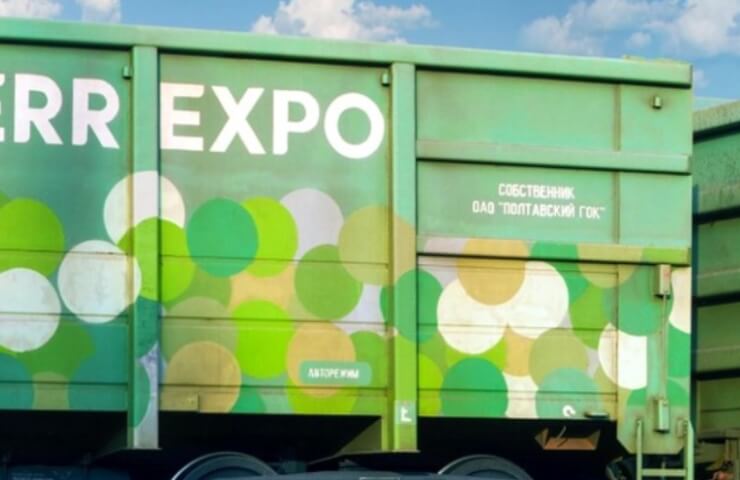The Swiss mining company Ferrexpo plc, which controls three large mining and processing plants in Ukraine, produced 901 thousand tons of pellets in January-March this year, which is 67% less than in the same period last year.
According to the stock exchange According to the company on Thursday, the production of pellets in the first quarter of 2023 increased by 2.16 times compared to the fourth quarter of 2022 (in October-December last year - 417 thousand tons).
In 2023, Ukrainian GOKs of the company produced only pellets with an iron content of 65%.
At the same time, the total production of marketable products (pellets and iron ore concentrate) for the first quarter of this year decreased by 65% compared to the first quarter of 2022, but increased by the fourth quarter of 2022 by 2.1 times - up to 954 thousand tons.
A press release from Ferrexpo explains that the growth in pellet production in the first quarter of this year is associated with improved electricity supply, which allowed restarting the second line clumping at the end of February 2023.
At the same time, the decrease in the group’s production volumes compared to last year is due to operational and logistical restrictions that have arisen since the start of a full-scale military invasion by Russia in February last year.
The company continues to focus on high iron content products.The Group intends to continue operating one to two pelletizing lines in the next quarter, as it did in the first quarter of 2023, in the absence of further significant changes in the operating environment and availability of logistics in Ukraine.
Total iron ore sales amounted to 0.85 million tons during January-March 2023 with deliveries to European customers by rail and barges.
Ferexpo Chief Executive Officer Jim North commented that the 0.9 million tonnes of pellet production in the first quarter of 2023 is a significant increase quarter-on-quarter and reflects the easing of operating restrictions that came into effect at the end of last year.
“As noted in our recent announcement of our full year results, we are now able to operate a second (out of four) pelletizing line and our logistics networks are capable of delivering customer sales to match this level of demand. Going forward, we aim to balance production volumes with a conservative approach to maintain the group's balance sheet and liquidity while ensuring stable deliveries to our long-term customers,” North was quoted in a press release.
Ferexpo reportedly produced 6,053 in 2022 million tons of pellets, which is 46% less than in 2021. At the same time, pellet production in the fourth quarter of 2022 decreased by 86% compared to the fourth quarter of 2021, and by 50% by September-December 2022, to 417 thousand tons.
In 2022 production of premium pellets with an iron content of 65% amounted to 5.7 million tons (a decrease of 47%), including 417 thousand tons in the fourth quarter (a decrease of 28% compared to the previous quarter and 86% compared to the same period of the previous year ).
The production of direct reduced iron pellets (DRI, 67% iron) last year amounted to 353 thousand tons (a decrease of 18% by 2021), which was not produced in the fourth quarter of 2022. No pellets with an iron content of 62% were produced in 2022.
Ferrexpo is an iron ore company with assets in Ukraine. Ferrexpo owns a 100% stake in Eristovsky GOK LLC and a 99.9% stake in Bilanovsky GOK LLC. The court decision in September 2022 stated that Ferrexpo also owned 100% of the shares of PrJSC Poltava GOK.
The Group produces pellets from high-quality iron ore, which is a premium product for the global steel industry and allows to reduce carbon emissions and increase the productivity of steel mills when the Group's iron ore pellets are processed into steel, compared to the more common forms of iron ore.
Historically, Ferrexpo has been the world's third largest exporter of pellets to the global steel industry, and in 2021 year, its market share was approximately 9%. The Group has a global customer base of premium steel mills worldwide, including steel mills in Austria, Germany, Japan, South Korea, Taiwan, China, Slovakia, Czech Republic, Turkey, Vietnam and America.




